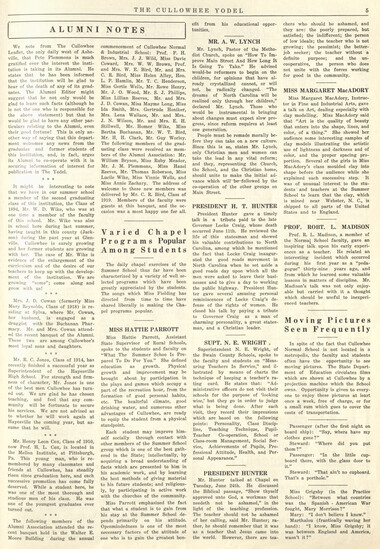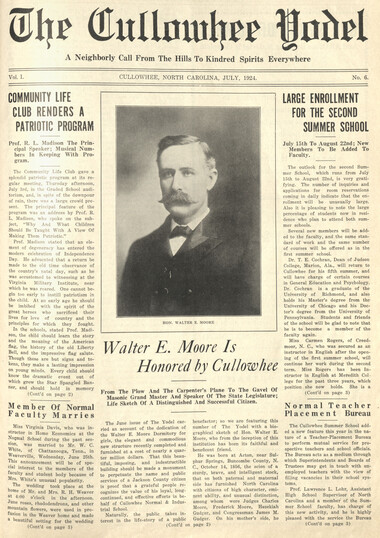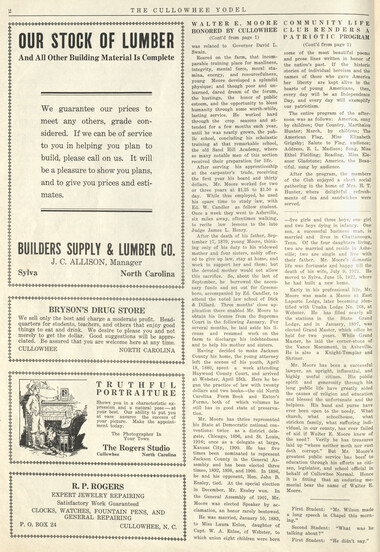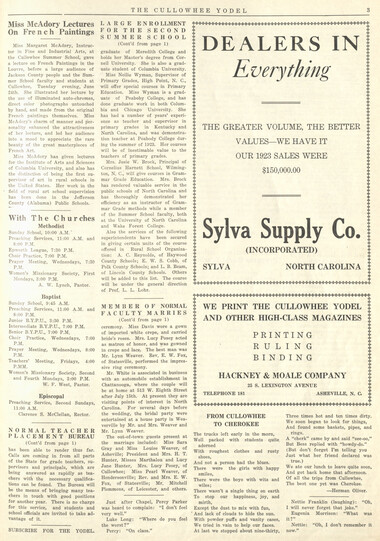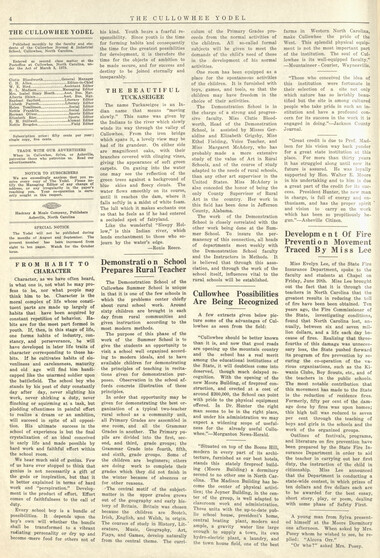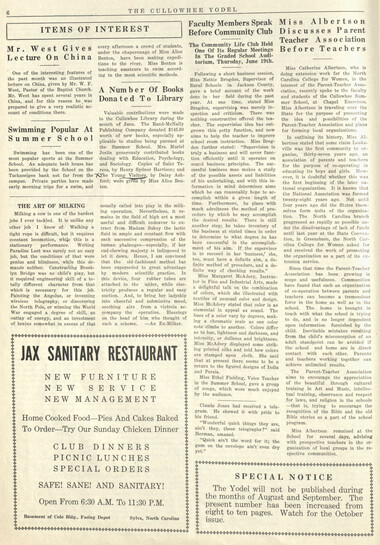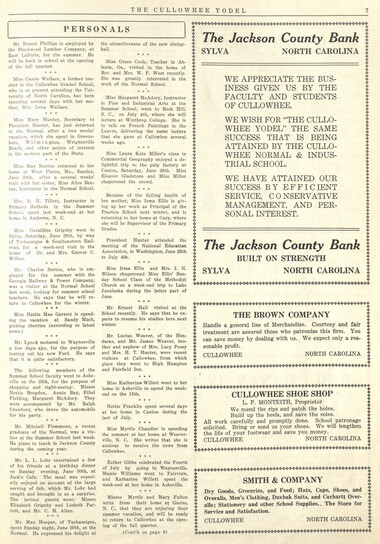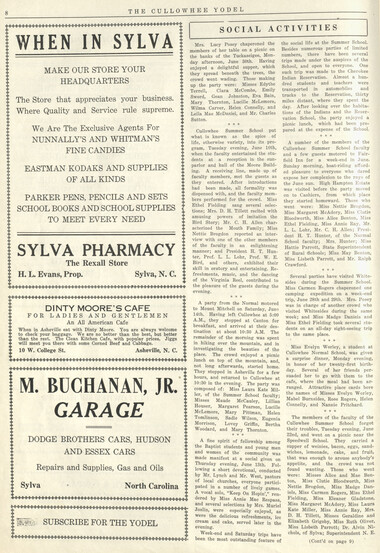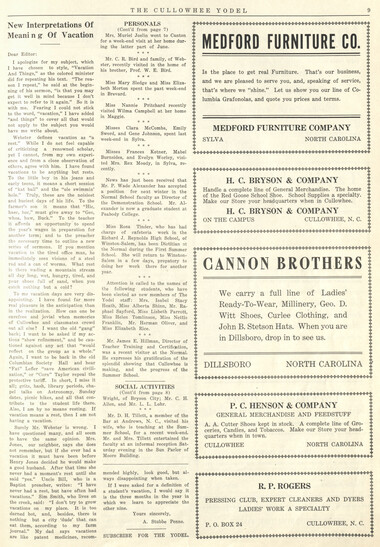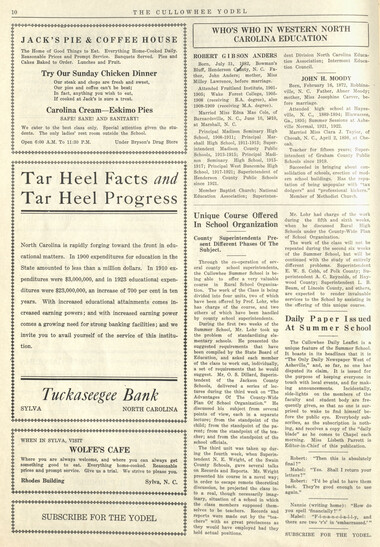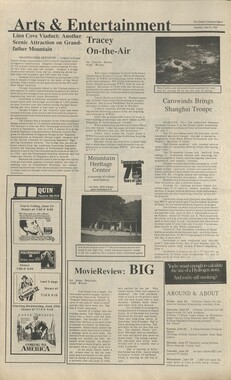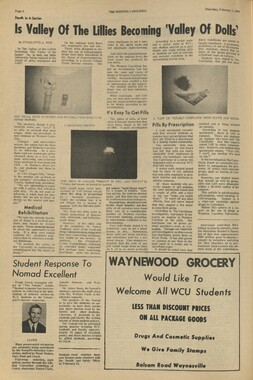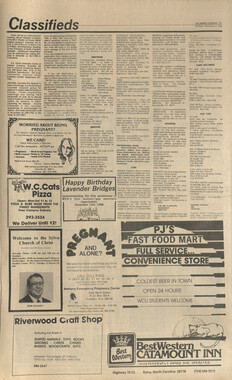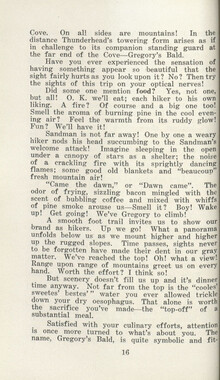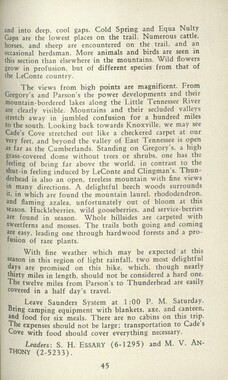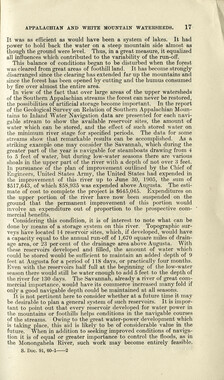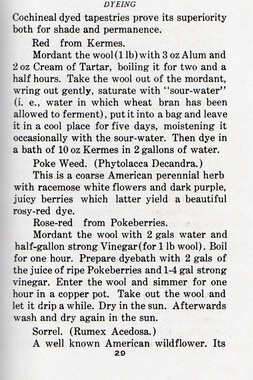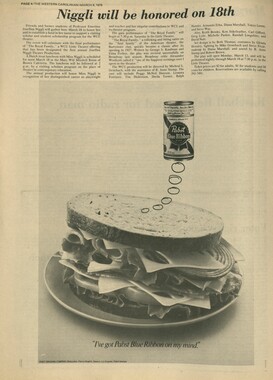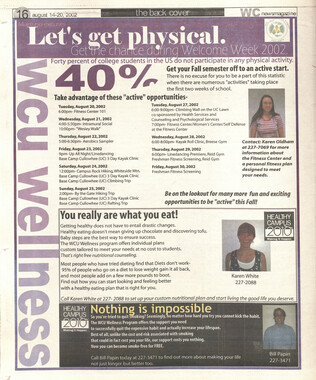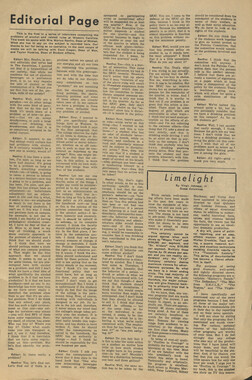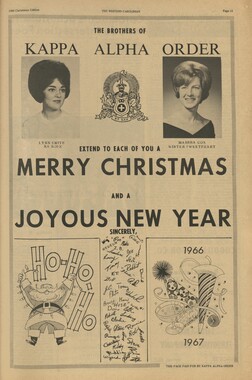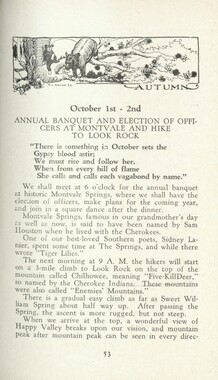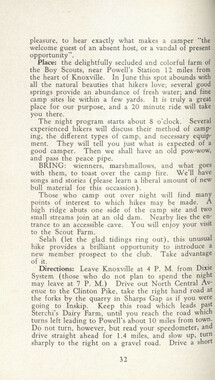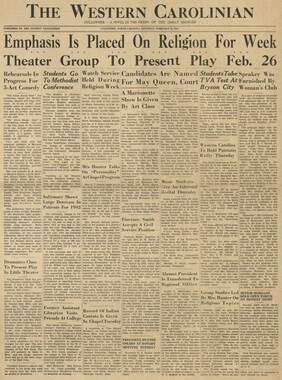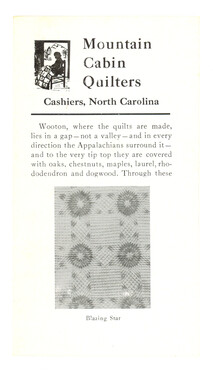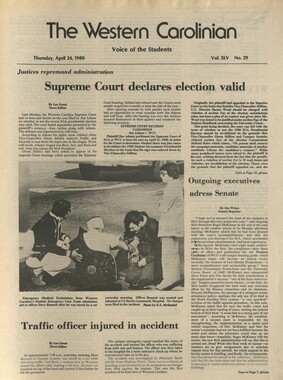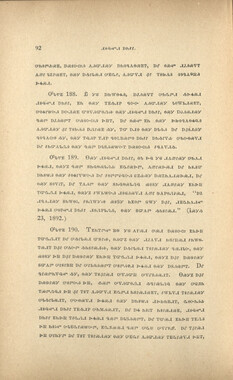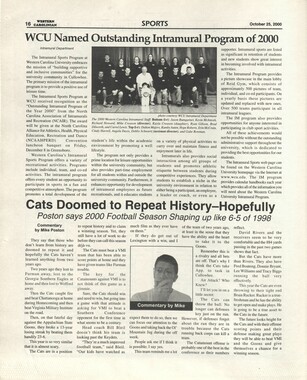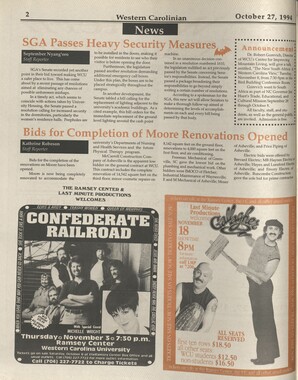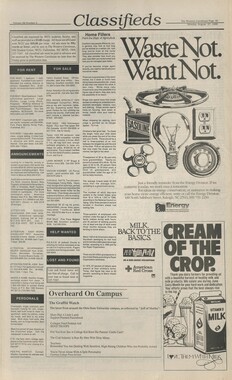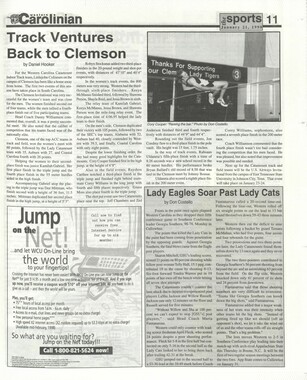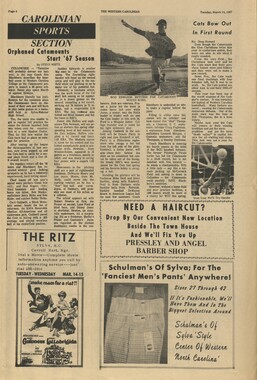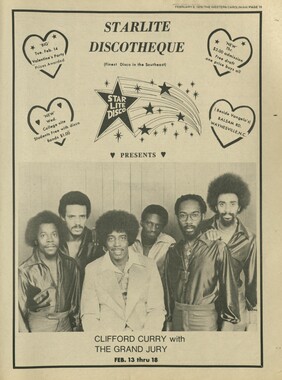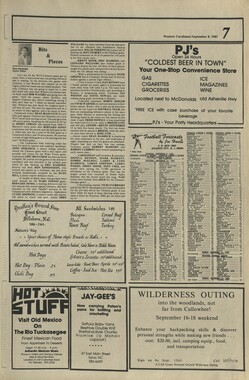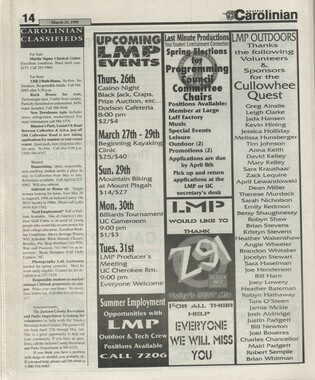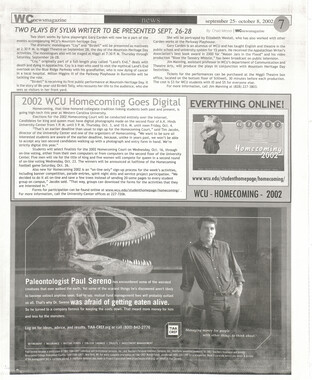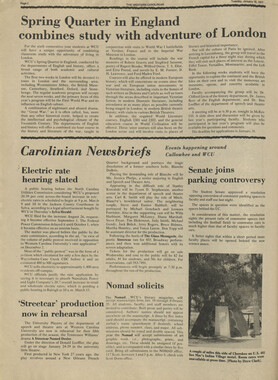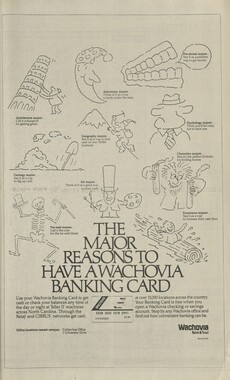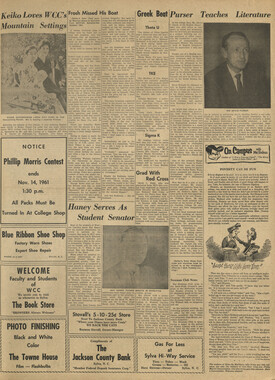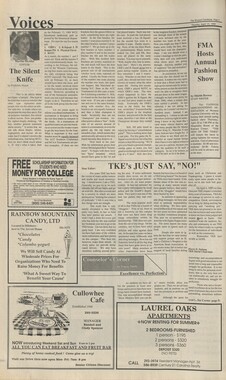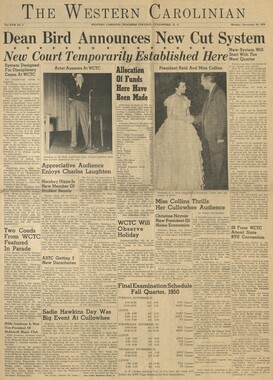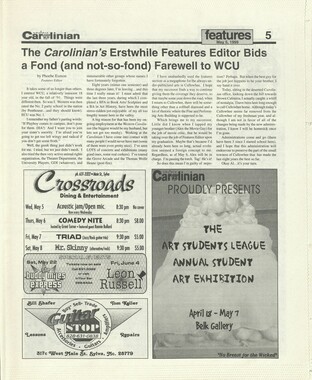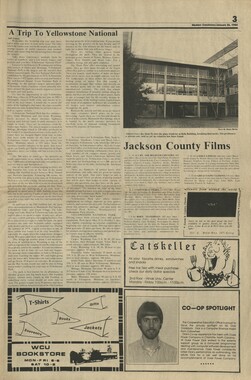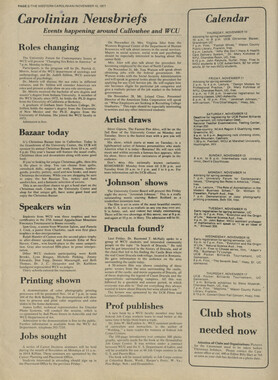Western Carolina University (20)
View all
- Canton Champion Fibre Company (2308)
- Cherokee Traditions (293)
- Civil War in Southern Appalachia (165)
- Craft Revival (1942)
- Great Smoky Mountains - A Park for America (2767)
- Highlights from Western Carolina University (430)
- Horace Kephart (941)
- Journeys Through Jackson (154)
- LGBTQIA+ Archive of Jackson County (26)
- Oral Histories of Western North Carolina (314)
- Picturing Appalachia (6772)
- Stories of Mountain Folk (413)
- Travel Western North Carolina (160)
- Western Carolina University Fine Art Museum Vitreograph Collection (129)
- Western Carolina University Herbarium (92)
- Western Carolina University: Making Memories (708)
- Western Carolina University Publications (2283)
- Western Carolina University Restricted Electronic Theses and Dissertations (146)
- Western North Carolina Regional Maps (71)
- World War II in Southern Appalachia (131)
University of North Carolina Asheville (6)
View all
- Allanstand Cottage Industries (62)
- Appalachian National Park Association (53)
- Bennett, Kelly, 1890-1974 (1388)
- Berry, Walter (76)
- Brasstown Carvers (40)
- Carver, George Washington, 1864?-1943 (26)
- Cathey, Joseph, 1803-1874 (1)
- Champion Fibre Company (233)
- Champion Paper and Fibre Company (297)
- Cherokee Indian Fair Association (16)
- Cherokee Language Program (22)
- Crowe, Amanda (40)
- Edmonston, Thomas Benton, 1842-1907 (7)
- Ensley, A. L. (Abraham Lincoln), 1865-1948 (275)
- Fromer, Irving Rhodes, 1913-1994 (70)
- George Butz (BFS 1907) (46)
- Goodrich, Frances Louisa (120)
- Grant, George Alexander, 1891-1964 (96)
- Heard, Marian Gladys (60)
- Kephart, Calvin, 1883-1969 (15)
- Kephart, Horace, 1862-1931 (313)
- Kephart, Laura, 1862-1954 (39)
- Laney, Gideon Thomas, 1889-1976 (439)
- Masa, George, 1881-1933 (61)
- McElhinney, William Julian, 1896-1953 (44)
- Niggli, Josephina, 1910-1983 (10)
- North Carolina Park Commission (105)
- Osborne, Kezia Stradley (9)
- Owens, Samuel Robert, 1918-1995 (11)
- Penland Weavers and Potters (36)
- Roberts, Vivienne (15)
- Roth, Albert, 1890-1974 (142)
- Schenck, Carl Alwin, 1868-1955 (1)
- Sherrill's Photography Studio (2565)
- Southern Highland Handicraft Guild (127)
- Southern Highlanders, Inc. (71)
- Stalcup, Jesse Bryson (46)
- Stearns, I. K. (213)
- Thompson, James Edward, 1880-1976 (226)
- United States. Indian Arts and Crafts Board (130)
- USFS (683)
- Vance, Zebulon Baird, 1830-1894 (1)
- Weaver, Zebulon, 1872-1948 (58)
- Western Carolina College (230)
- Western Carolina Teachers College (282)
- Western Carolina University (1794)
- Western Carolina University. Mountain Heritage Center (18)
- Whitman, Walt, 1819-1892 (10)
- Wilburn, Hiram Coleman, 1880-1967 (73)
- Williams, Isadora (3)
- Cain, Doreyl Ammons (0)
- Crittenden, Lorraine (0)
- Rhodes, Judy (0)
- Smith, Edward Clark (0)
- Appalachian Region, Southern (2399)
- Asheville (N.C.) (1917)
- Avery County (N.C.) (26)
- Blount County (Tenn.) (161)
- Buncombe County (N.C.) (1671)
- Cherokee County (N.C.) (283)
- Clay County (N.C.) (555)
- Graham County (N.C.) (233)
- Great Smoky Mountains National Park (N.C. and Tenn.) (510)
- Haywood County (N.C.) (3522)
- Henderson County (N.C.) (70)
- Jackson County (N.C.) (4692)
- Knox County (Tenn.) (25)
- Knoxville (Tenn.) (12)
- Lake Santeetlah (N.C.) (10)
- Macon County (N.C.) (420)
- Madison County (N.C.) (211)
- McDowell County (N.C.) (39)
- Mitchell County (N.C.) (132)
- Polk County (N.C.) (35)
- Qualla Boundary (981)
- Rutherford County (N.C.) (76)
- Swain County (N.C.) (2113)
- Transylvania County (N.C.) (247)
- Watauga County (N.C.) (12)
- Waynesville (N.C.) (73)
- Yancey County (N.C.) (72)
- Aerial Photographs (3)
- Aerial Views (60)
- Albums (books) (4)
- Articles (1)
- Artifacts (object Genre) (228)
- Bibliographies (1)
- Biography (general Genre) (2)
- Cards (information Artifacts) (38)
- Clippings (information Artifacts) (191)
- Crafts (art Genres) (622)
- Depictions (visual Works) (21)
- Design Drawings (1)
- Drawings (visual Works) (184)
- Envelopes (73)
- Facsimiles (reproductions) (1)
- Fiction (general Genre) (4)
- Financial Records (12)
- Fliers (printed Matter) (67)
- Glass Plate Negatives (381)
- Guidebooks (2)
- Internegatives (10)
- Interviews (812)
- Land Surveys (102)
- Letters (correspondence) (1013)
- Manuscripts (documents) (619)
- Maps (documents) (177)
- Memorandums (25)
- Minutes (administrative Records) (59)
- Negatives (photographs) (5835)
- Newsletters (1285)
- Newspapers (2)
- Occupation Currency (1)
- Paintings (visual Works) (1)
- Pen And Ink Drawings (1)
- Periodicals (193)
- Personal Narratives (10)
- Photographs (12976)
- Plans (maps) (1)
- Poetry (7)
- Portraits (1960)
- Postcards (329)
- Programs (documents) (151)
- Publications (documents) (2237)
- Questionnaires (65)
- Scrapbooks (282)
- Sheet Music (2)
- Slides (photographs) (402)
- Songs (musical Compositions) (2)
- Sound Recordings (796)
- Specimens (92)
- Speeches (documents) (15)
- Tintypes (photographs) (8)
- Transcripts (322)
- Video Recordings (physical Artifacts) (23)
- Vitreographs (129)
- Text Messages (0)
- A.L. Ensley Collection (275)
- Appalachian Industrial School Records (7)
- Appalachian National Park Association Records (336)
- Axley-Meroney Collection (2)
- Bayard Wootten Photograph Collection (20)
- Bethel Rural Community Organization Collection (7)
- Blumer Collection (5)
- C.W. Slagle Collection (20)
- Canton Area Historical Museum (2110)
- Carlos C. Campbell Collection (282)
- Cataloochee History Project (65)
- Cherokee Studies Collection (4)
- Daisy Dame Photograph Album (5)
- Daniel Boone VI Collection (1)
- Doris Ulmann Photograph Collection (112)
- Elizabeth H. Lasley Collection (1)
- Elizabeth Woolworth Szold Fleharty Collection (4)
- Frank Fry Collection (95)
- George Masa Collection (173)
- Gideon Laney Collection (452)
- Hazel Scarborough Collection (2)
- Hiram C. Wilburn Papers (28)
- Historic Photographs Collection (236)
- Horace Kephart Collection (861)
- Humbard Collection (33)
- Hunter and Weaver Families Collection (1)
- I. D. Blumenthal Collection (4)
- Isadora Williams Collection (4)
- Jesse Bryson Stalcup Collection (47)
- Jim Thompson Collection (224)
- John B. Battle Collection (7)
- John C. Campbell Folk School Records (80)
- John Parris Collection (6)
- Judaculla Rock project (2)
- Kelly Bennett Collection (1407)
- Love Family Papers (11)
- Major Wiley Parris Civil War Letters (3)
- Map Collection (12)
- McFee-Misemer Civil War Letters (34)
- Mountain Heritage Center Collection (4)
- Norburn - Robertson - Thomson Families Collection (44)
- Pauline Hood Collection (7)
- Pre-Guild Collection (2)
- Qualla Arts and Crafts Mutual Collection (12)
- R.A. Romanes Collection (681)
- Rosser H. Taylor Collection (1)
- Samuel Robert Owens Collection (94)
- Sara Madison Collection (144)
- Sherrill Studio Photo Collection (2558)
- Smoky Mountains Hiking Club Collection (616)
- Stories of Mountain Folk - Radio Programs (374)
- The Reporter, Western Carolina University (510)
- Venoy and Elizabeth Reed Collection (16)
- WCU Gender and Sexuality Oral History Project (32)
- WCU Mountain Heritage Center Oral Histories (25)
- WCU Oral History Collection - Mountain People, Mountain Lives (71)
- WCU Students Newspapers Collection (1744)
- Western North Carolina Tomorrow Black Oral History Project (69)
- William Williams Stringfield Collection (2)
- Zebulon Weaver Collection (109)
- African Americans (390)
- Appalachian Trail (35)
- Artisans (521)
- Cherokee art (84)
- Cherokee artists -- North Carolina (10)
- Cherokee language (21)
- Cherokee pottery (101)
- Cherokee women (208)
- Church buildings (167)
- Civilian Conservation Corps (U.S.) (110)
- College student newspapers and periodicals (1830)
- Dams (103)
- Dance (1023)
- Education (222)
- Floods (61)
- Folk music (1015)
- Forced removal, 1813-1903 (2)
- Forest conservation (220)
- Forests and forestry (1058)
- Gender nonconformity (4)
- Great Smoky Mountains National Park (N.C. and Tenn.) (181)
- Hunting (38)
- Landscape photography (10)
- Logging (103)
- Maps (84)
- Mines and mineral resources (8)
- North Carolina -- Maps (18)
- Paper industry (38)
- Postcards (255)
- Pottery (135)
- Railroad trains (71)
- Rural electrification -- North Carolina, Western (3)
- School integration -- Southern States (2)
- Segregation -- North Carolina, Western (5)
- Slavery (5)
- Sports (452)
- Storytelling (245)
- Waterfalls -- Great Smoky Mountains (N.C. and Tenn.) (66)
- Weaving -- Appalachian Region, Southern (280)
- Wood-carving -- Appalachian Region, Southern (328)
- World War, 1939-1945 (173)
Cullowhee Yodel Volume 01 Number 06
Item
Item’s are ‘child’ level descriptions to ‘parent’ objects, (e.g. one page of a whole book).
-
-
THE CULLOWHEE YODEL ALUMNI NOTES efit from his educational opportunities. We note from The Cullowhee Leaflet, the only daily west of Asheville, that Pete Plemmons is much gratified over the interest the institution is taking in its Alumni. He states that he has been informed that the institution will be glad to hear of the death of any of its graduates. The Alumni Editor might suggest that he not only would be glad to learn such facts (although he is not the one who is responsible for the above statement) but that he would be glad to have any other particulars relating to the Alumni, even their good fortune! This is only another way of saying that this department welcomes any news from the graduates and former students of this institution, and, in fact, urges its Alumni to co-operate with it in securing information of interest for publication in The Yodel. It might be interesting to note that we have in our summer school a member of the second graduating class of this institution, the Class of 1894, Mr. W. D. Wike, who was at one time a member of the faculty of this school. Mr. Wike was also in school here during last summer, having taught in this county (Jackson) during the past year at Glen- ville. Cullowhee is surely growing and her former students are growing with her. The case of Mr. Wike is evidence of the enlargement of the curriculum and of the desire of our teachers to keep up with the development of the institution. We are growing "some"; come along and grow with us! Mrs. J. D. Cowan (formerly Miss Mary Reynolds, Class of 1918) is residing at Sylva, where Mr. Cowan, her husband, is engaged as a druggist with the Buchanan Pharmacy. Mr. and Mrs. Cowan attended the recent banquet of the Alumni. These two are among Cullowhee's most loyal sons and daughters. Mr. R. C. Jones, Class of 1914, has recently finished a successful year as Superintendent of the Hayesville High School. For strength and firmness of character, Mr. Jones is one of the best men Cullowhee has turned out. We are glad he has chosen teaching, and feel that any community will be fortunate to secure his services. We are not advised as to whether he will work again at Hayesville the coming year, but assume that he will. Mr. Henry Leon Cox, Class of 1910, now Prof. H. L. Cox, is. located in the Mellon Institute, at Pittsburgh, Pa. This young man, who is remembered by many classmates and friends at Cullowhee, has steadily risen since graduation here, and each successive promotion has come fully deserved. While a student here, he was one of the most thorough and studious men of his class. He was one of the youngest graduates ever turned out. The following members of the Alumni Association attended the recent banquet held in the Walter E. Moore Building during the annual commencement of Cullowhee Normal & Industrial School: Prof. F. H. Brown, Mrs. J. J. Wild, Miss Davie Coward, Mrs. W. W. Brown, Prof, and Mrs. W. E. Bird, Mr. and Mrs. C. R. Bird, Miss Helen Alley, Hon. L. P. Hamlin, Mr. T. C. Henderson, Miss Gertie Wells, Mr. Rowe Henry, Mr. J. 0. Wood, Mr. S. J. Phillips, Miss Lillian Reeves, Mr. and Mrs. J. D. Cowan, Miss Mayme Long, Miss Ida Smith, Mrs. Gertrude Honiker, Mrs. Lena Wallace, Mr. and Mrs.. J. N. Wilson, Mr. and Mrs. E. H. Stillwell, Mr. Homer Wike, Miss Bertha Buchanan, Mr. W. T. Bird, Mr. H. H. Clark, Mr. Guy Worley. The following members of the graduating class were received as members of the Alumni Association: Mr. William Bryson, Miss Ruby Meador, Mr. J. M. Plemmons, Miss Hazel Reeves, Mr. Thomas Roberson, Miss Lucile Wike, Miss Vinnie Wells, and Miss Annie Zachary. The address of welcome to these new members was delivered by Mr. C. R. Bird, Class of 1919. Members of the faculty were guests at this banquet, and the occasion was a most happy one for all. MR. A. W. LYNCH Mr. Lynch, Pastor of the Methodist Church, spoke on "How To Improve Main Street And How Long It Is Going To Take." He advised would-be reformers to begin on the children, for opinions that have already crystallized cannot, or will not, be radically changed. "The dreams of North Carolina will be realized only through her children," declared Mr. Lynch. Those who would be instrumental in bringing about changes must expect slow progress, since reform requires at least one generation. People must be remade morally before they can take on a new culture. Since this is so, states Mr. Lynch, only Christian men and women can take the lead in any vital reform; and they, representing the Church, the School, and the Christian home, should unite to make the initial advance which will be-followed by the co-operation of the other groups on Main Street. Varied Chapel Programs Popular Among Students The daily chapel exercises of the Summer School thus far have been characterized by a variety of well selected programs which have been greatly appreciated by the students. The songs which Miss Fielding has directed from time to time have shared liberally in making the Chapel programs popular. MISS HATTIE PARROTT Miss Hattie Parrott, Assistant State Supervisor of Rural Schools, spoke to the students and faculty on "What The Summer Schoo Is Prepared To Do For You." She defined education as growth. Physical growth and improvement may be brought about by participation in the plays and games which occupy a part of the recreation hour, from the formation of good personal habits, etc. The healtrful climate, good drinking water, and numerous other advantages of Cullowhee, are ready to equip the student from a physical standpoint. Each student may improve himself socially through contact with other members of the Summer School group which is one of the best gathered in the State; intellectually, by acquiring a broad understanding of facts which are presented to him in his academic work, and by learning the best methods of giving material to his future students; and religiously, by participating in active work with the churches of the community. Miss Parrott emphasized the fact that what a student is to gain from his stay at the Summer School depends primarily on his attitude. Opennxindedness is one of the most necessary factors of the attitude of one who is to gain the greatest ben- PRESIDENT H. T. HUNTER President Hunter gave a timely talk in a tribute paid to the late Governor Locke Craig, whose death occurred June 11th. He reviewed the life of this statesman and showed his valuable contributions to North Carolina, among which he mentioned the fact that Locke Craig inaugurated the good roads movement in North Carolina when he set aside a good roads day upon which all the men were asked to leave their businesses and to give a day to working the public highway. President Hunter gave several amusing personal reminiscences of Locke Craig's defense of the rights of women. He closed his talk by paying a tribute to Governor Craig as a man of charming personality, a great statesman, and a Christian leader. PRESIDENT HUNTER Mr. Hunter talked at Chapel on Tuesday, June 24th. He discussed the Biblical passage, "Show thyself approved unto God, a workman that needeth not be ashamed," in the light of the teaching profession. The teacher should not be ashamed of her calling, said Mr. Hunter; rather, he should remember that it was as a teacher that Jesus came into the world. However, there are tea chers who should be ashamed, and they are: the poorly prepared, but satisfied; the indifferent; the person of low ideals; the teacher who is not growing; the pessimist; the better- job seeker; the teacher without a definite purpose; and the uncooperative, the person who does not unite with the forces working for good in the community. MISS MARGARET MacADORY Miss Margaret MacAdory, Instructor in Fine and Industrial Arts, gave a talk on Art, dealing especially with clay modelling. Miss MacAdory said that "Art is the quality of beauty that enters into the shape, lines, and color, of a thing." She showed her audience some interesting samples of clay models illustrating the artistic use of lightness and darkness and of color, and the proper spacing proportion. Several of the girls in Miss MacAdory's class moulded clay into shape before the audience while she explained each successive step. It was of unusual interest to the students ' and teachers at the Summer School to learn that the clay, which is mined near Webster, N. C, is shipped to all parts of the United States and to England. PROF. ROBT. L. MADISON Prof. R. L. Madison, a member of the Normal School faculty, gave an inspiring talk upon his early experiences as a teacher. He related an interesting incident which occurred during his first year as a "pedagogue" thirty-nine years ago, and from which he learned some valuable lessons in matters of discipline. Mr. Madison's talk was not only enjoyable but carried with it a thought which should be useful to inexperienced teachers. Moving Pictures Seen Frequently SUPT. N. E. WRIGHT . Superintendent N. E. Wright, of the Swain County Schools, spoke to the faculty and students on "Measuring Teachers In Service," and illustrated by means of charts the technique of keeping a teacher's rating card. He states that: "Administrative officers do not visit their schools for the purpose of 'looking wise,' but they go in order to judge what is being done. After each visit, they record their impressions which are based on the following points: Personality, Class Discipline, Teaching Technique, Pupil- Teacher Co-operation, School or Class-room Management, Social Service, Achievements of Pupils, Professional Attitude, Health, and Personal Appearance." In spite of the fact that Cullowhee Normal School is not located in a metropolis, the faculty and students often have the opportunity to see moving pictures. The State Department of Education circulates films which are shown at Cullowhee by a projection machine which the School owns. Opportunity is given to everyone to enjoy these pictures at least once a week, free of charge, or for a small sum which goes to cover the costs of transportation. Passenger (after the first night on board ship): "Say, where have my clothes gone?" Steward: "Where did you put Passenger: "In the little cupboard there, with the glass door to Steward: "That ain't That's a porthole." ) cupboard. Miss Grigsby (in the Practice School): "Between what countries was the Spanish - American War fought, Mary Morrison?" Mary: "I don't believe I know." Marthalou (frantically waving her hand): "I know, Miss Grigsby; it was between England and America, wasn't it?"
Object
Object’s are ‘parent’ level descriptions to ‘children’ items, (e.g. a book with pages).
-
The Western Carolinian is Western Carolina University’s student-run newspaper. The paper was published as the Cullowhee Yodel from 1924 to 1931 before changing its name to The Western Carolinian in 1933.
-
